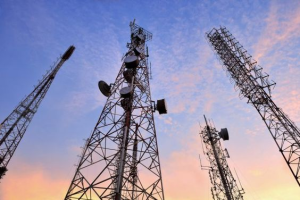Introduction To Telecommunication Engineering
Telecommunication Engineering
Certainly! Telecommunication engineering is a field of engineering that focuses on designing, implementing, and maintaining systems and networks that transmit information over long distances. This information can take various forms, such as voice, data, video, and more. Telecommunication engineers play a crucial role in enabling communication across the globe by developing and managing the infrastructure and technologies that make it all possible.
Here are some key aspects of telecommunication engineering:
Network Design: Telecommunication engineers design various types of networks, including wired and wireless systems. They plan the layout of networks to ensure efficient data transmission and minimal signal interference.
Data Transmission: They work on techniques and technologies for transmitting data, whether it’s over copper wires, optical fibers, radio waves, or satellite links. This includes encoding, modulation, and multiplexing techniques.
Wireless Communication: Telecommunication engineers are heavily involved in the development of wireless communication systems, such as cellular networks and Wi-Fi. They deal with aspects like spectrum management, interference mitigation, and network optimization.

Signal Processing: Signal processing is a critical component of telecommunication engineering. Engineers work on algorithms and devices to enhance the quality and efficiency of signal transmission and reception.
Network Security: In an age where information security is crucial, telecommunication engineers also focus on securing data during transmission. They work on encryption, authentication, and other security measures to protect sensitive information.
Telecommunication Standards: Engineers must stay updated with the latest industry standards and regulations, ensuring that their designs and implementations adhere to legal and technical requirements.
Infrastructure Management: Telecommunication engineers are responsible for maintaining and upgrading existing telecommunication systems. This includes troubleshooting issues, expanding networks, and implementing new technologies.
Emerging Technologies: The field is ever-evolving, and engineers need to stay current with emerging technologies like 5G, the Internet of Things (IoT), and satellite communication.
Global Communication: Telecommunication engineering is critical for global connectivity. Engineers play a significant role in making long-distance communication possible, connecting people and businesses around the world.
Cross-Disciplinary Collaboration: Telecommunication engineers often collaborate with professionals in computer science, electrical engineering, and other fields to develop comprehensive solutions.
The field of telecommunication engineering is dynamic and has a profound impact on our daily lives, as it enables the communication systems we rely on for work, leisure, and personal connections. It continues to evolve with the development of new technologies, making it an exciting and essential area of engineering.
History and Evolution of Telecommunication
The roots of telecommunication engineering can be traced back to the invention of the telegraph in the early 19th century. Over the years, it has evolved from Morse code and telegraph wires to the advanced technologies we use today. This evolution has been marked by milestones such as the invention of the telephone, the development of the internet, and the advent of mobile communication. For more information visit our page:losangelestimez.com
Key Concepts in Telecommunication Engineering
Transmission
Transmission is the fundamental process of sending information from one point to another. Telecommunication engineers work on designing efficient transmission methods, minimizing signal loss, and ensuring data integrity during transmission.
Signaling
Signaling involves the use of symbols or codes to convey information. In telecommunication, signaling protocols are essential for establishing and maintaining communication between devices.
Data Encoding
Data encoding is the conversion of data into a format suitable for transmission. Engineers focus on choosing the right encoding methods to optimize data transfer.
Network Topology
Network topology refers to the physical or logical layout of a communication network. Different topologies, such as star, ring, and mesh, have unique characteristics and applications.
Telecommunication Infrastructure
Cables and Fiber Optics
Cables and fiber optics form the backbone of wired communication. Fiber optics, in particular, allows for high-speed data transmission over long distances with minimal signal loss.
Wireless Technologies
Wireless technologies have revolutionized communication by enabling mobility. Telecommunication engineers work on designing and optimizing wireless networks, ensuring reliable connections.
Telecommunication Protocols and Standards
Telecommunication protocols and standards ensure interoperability between different devices and networks. Standards like TCP/IP and GSM have become the foundation of modern communication.
Telecommunication Systems and Devices
Phones and Smartphones
Telecommunication engineers have played a vital role in the development of phones and smartphones. These devices are now not only communication tools but also multifunctional gadgets.
Modems and Routers
Modems and routers are essential components of the internet. They facilitate data transmission and network connectivity in homes and businesses.
Satellite Communication
Satellite communication is crucial for global connectivity, especially in remote areas. Engineers work on satellite technology to enable communication in these regions.
The Role of Telecommunication in Modern Society
Telecommunication is the lifeline of modern society. It enables everything from social media and online shopping to emergency services and global business transactions. Without telecommunication, our interconnected world would come to a standstill.
Challenges and Future Trends in Telecommunication

The telecommunication field faces challenges such as spectrum congestion and cybersecurity threats. However, it’s also brimming with exciting future trends, including 6G, quantum communication, and IoT connectivity. Telecommunication engineers are in high demand. They can find employment in various sectors, including telecommunications companies, government agencies, and tech firms.
Educational Pathways for Telecommunication Engineers
To become a telecommunication engineer, one can pursue degrees in electrical engineering, computer engineering, or telecommunications. Advanced degrees can open doors to specialized roles.
Importance of Cybersecurity in Telecommunication
Cybersecurity is paramount in telecommunication to protect sensitive data and networks. Engineers are at the forefront of developing secure communication solutions.
Impact of 5G on Telecommunication
The rollout of 5G networks promises faster and more reliable communication. It will pave the way for innovations like autonomous vehicles and augmented reality. Explore real-world examples of telecommunication innovations, from telemedicine to smart cities, showcasing how technology is changing the world. The telecommunication industry also addresses environmental sustainability. Engineers work on energy-efficient solutions and e-waste management.
Conclusion
Telecommunication engineering is a dynamic and essential field that shapes the way we connect, communicate, and innovate. As technology continues to advance, telecommunication engineers will be at the forefront of creating a more connected world.
FAQs
Q. What is the role of a telecommunication engineer?
Telecommunication engineers design, develop, and maintain communication systems and networks. Their role includes ensuring efficient data transmission, optimizing network performance, and addressing connectivity issues.
Q. How does 5G technology differ from previous generations?
5G technology offers significantly faster data speeds, lower latency, and the ability to connect more devices simultaneously compared to its predecessors. It is expected to support emerging technologies like IoT, autonomous vehicles, and augmented reality.
Q. Are there job opportunities in telecommunication engineering?
Yes, telecommunication engineering offers numerous job opportunities. Telecommunication engineers can work in telecommunications companies, internet service providers, research institutions, and even in industries like healthcare and transportation that rely on advanced communication technology.
Q. What educational background is required to become a telecommunication engineer?
Typically, a bachelor’s degree in electrical engineering, computer engineering, or telecommunications engineering is the starting point for a career in telecommunications engineering. Many professionals also pursue master’s or specialized degrees for more advanced roles.
Q. How does telecommunication impact our daily lives?
Telecommunication is integral to modern life, affecting everything from our daily communication with friends and family to how we conduct business, access information online, and even enjoy entertainment. It’s the backbone of the interconnected world we live in, enabling real-time connectivity and information exchange.
